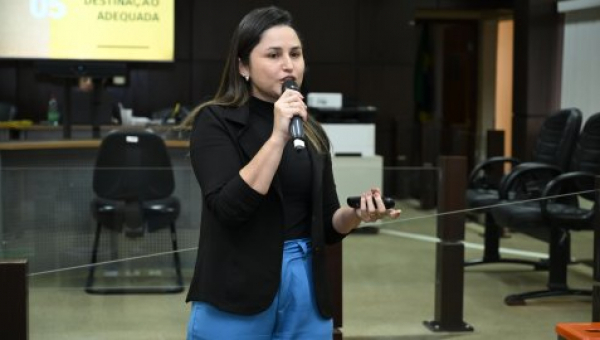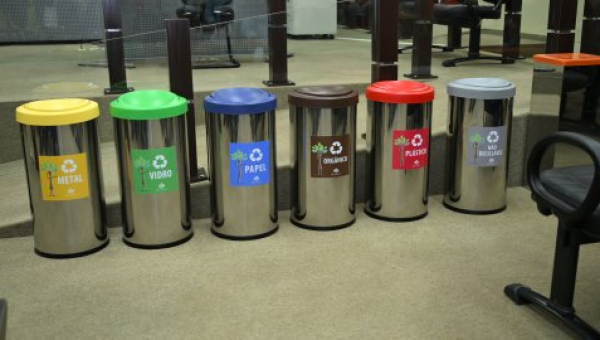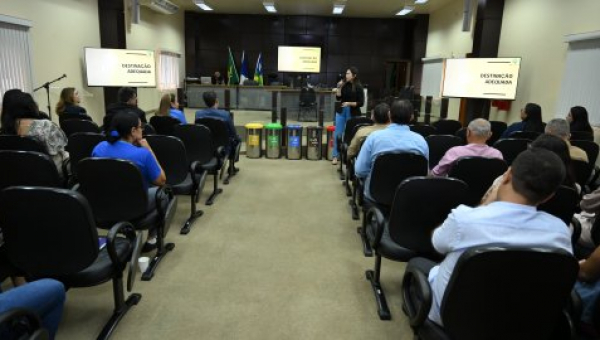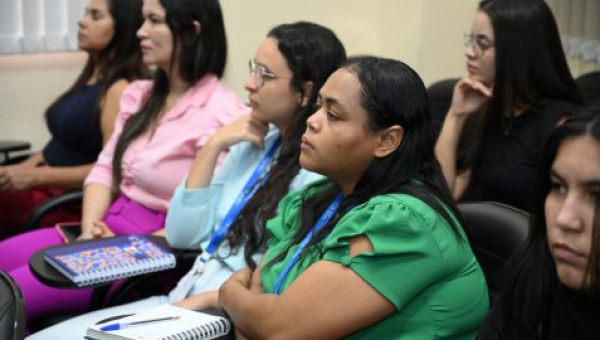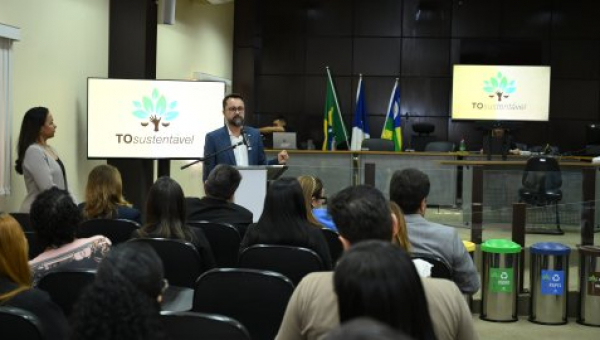
Separating solid waste for recycling is now part of the routine for magistrates, civil servers and trainees in the District of Dianópolis, in the south-east of the state of Tocantins. The Court of Justice of the State of Tocantins (TJTO), through the Management Committee for the Sustainable Logistics Plan (PLS), in partnership with the Coordination of Social and Environmental Management and Social Responsibility (Cogersa) and the Forum Board of the city, launched the Project on Solidary Selective Collection in the municipality on Monday (February 24th).
Launching the project, Justice Ângela Prudente, president of the Manager Committee of the PLS, highlighted the significance for sustainability of the project. “It symbolizes our commitment, not only to environmental preservation, but also to sustainable economic development and the promotion of an organizational culture based on responsibility.”
According to the justice, this work also represents an instrument of social inclusion, through partnerships with associations and cooperatives of waste pickers. “It's not just an ecological commitment, but also an act of social justice,” said the president of the Manager Committee of the PLS, pointing out that by implementing the project in the city of Dianópolis, the TJTO is planting yet another seed.
“Let this act of collecting and disposing of waste be understood as much more than the promotion of the recycling chain, a pollution that we will be able to control, but let it also be an act of brotherly love,” said the director of the Court of the District, Judge Rodrigo da Silva Perez Araújo.
Talking about sustainability in the context of caring, the judge asked everyone to take care of each other. “So that together we can take care of the people we are here for,” he added.
Separating to transform
Contribution, innovation, transformation and care are some of the feelings that drive the more than fifty civil servers in the district, such as Clarice Tolintino Aguiar, who works in the Criminal Court. She believes that the project has come to innovate and change every day practices.
“We need this change. The project came at a time when we really wanted to embrace the cause,” said Clarice, recalling the sustainable initiatives that have already been carried out on site. “Now we're committed to being able to change practices,” she added.
Knowing to contribute
To contribute to the project, you need to know why and how to separate waste properly. To this end, magistrates and civil servers from the district were trained on the proper disposal of waste, classification and types of treatment, at a Workshop on Selective Collection, developed by the Superior School of the Judges of the State of Tocantins (Esmat). On the occasion, the coordinator of Cogersa, Luciene Dantas, presented the strategic map of the Judiciary of the state of Tocantins.
Environmental engineers Cinthia Azevedo and Welica Rodrigues discussed the importance of correctly separating recyclable and non-recyclable waste, how solidary selective collection can contribute to environmental preservation, reducing the amount of waste sent to landfills, strengthening waste picker cooperatives, and disposing of seized goods.
The aim of the project is to promote the correct disposal of recyclable waste and the proper destination of seized goods, contributing to environmental preservation and strengthening sustainability.
In addition to the district of Dianópolis, the project has already been implemented in the courts of Palmas, Araguaína, Gurupi, Porto Nacional, Paraíso do Tocantins, Alvorada, Araguatins, Colinas do Tocantins and Natividade.
Programming
The event to launch the project in the district of Dianópolis was well attended, bringing together civil servers from the district and local authorities. The programming was also attended by the judge of the District João Alberto Mendes Bezerra Júnior; the mayor of Almas, Rainerival Ribeiro; the environmental secretaries of the cities of Dianópolis and Almas, Bilsan Rodrigues and Rael Domingos respectively; the Public Prosecutor Eduardo Ferro; the president of the branch of the BAR of Dianópolis, Renata Salomão; the director of the campus of the Federal Institute of the state of Tocantins in the city of Dianópolis, Pietro Lopes, among others.







